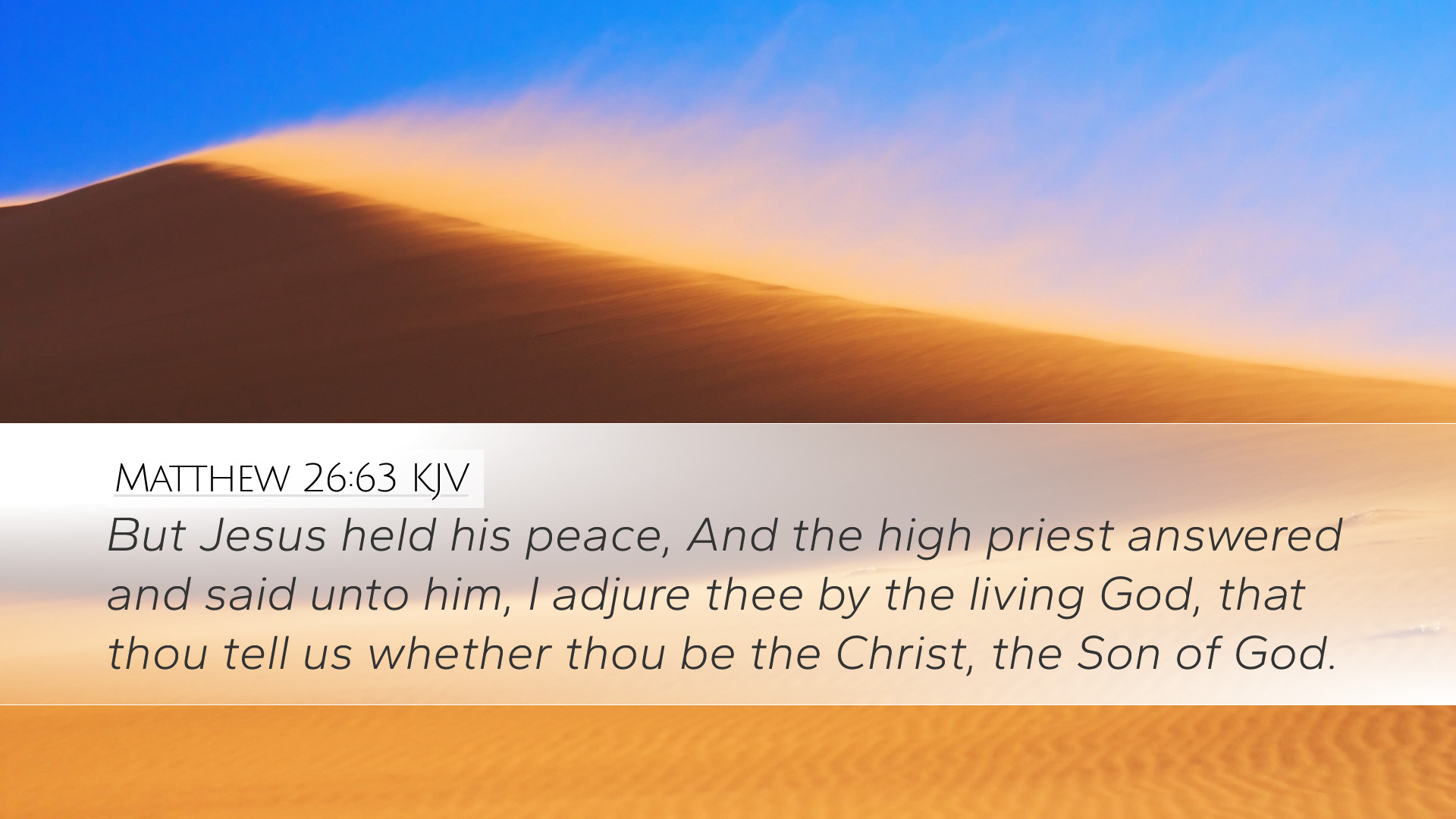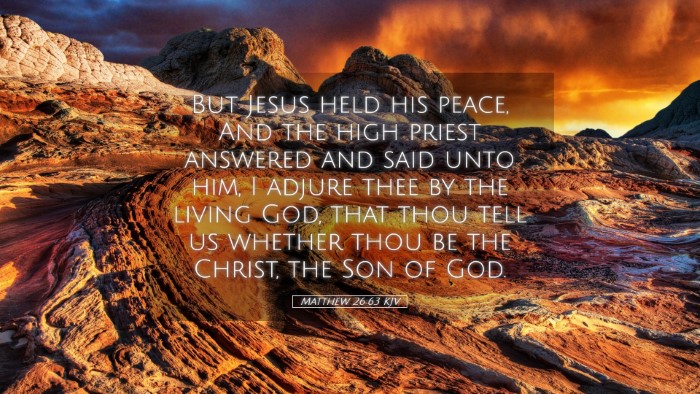Commentary on Matthew 26:63
Matthew 26:63 states: “But Jesus held his peace. And the high priest answered and said unto him, I adjure thee by the living God, that thou tell us whether thou be the Christ, the Son of God.” This verse captures a pivotal moment in the trial of Jesus, where silence, accusations, and declarations converge. Below, we delve into a synthesis of insights from several renowned public domain commentaries to illuminate the significance and implications of this moment.
1. The Context of the Trial
The context surrounding Matthew 26:63 is crucial for understanding its implications. Jesus was brought before the high priest Caiaphas and the Sanhedrin, facing accusations brought by false witnesses. Albert Barnes points out that the silence of Jesus under such accusations demonstrates not only His humility but also His divine authority. His composure in the face of vehement accusations marks a stark contrast to the frenzy of the religious leaders seeking a cause for condemnation.
2. The High Priest’s Question
The high priest’s appeal to the “living God” underscores the seriousness of his inquiry. Adam Clarke notes that invoking God in this manner signifies the gravity of the moment; the high priest was urging Jesus to respond with truth. The question regarding His identity as the Messiah was not merely academic but an existential challenge to Jesus’ mission and personhood as established in prophetic scripture.
3. The Silence of Jesus
Jesus’ silence (as highlighted by Matthew Henry) was profound. His refusal to engage immediately reflected an adherence to divine timing and purpose. Henry elaborates that this silence can be seen as a fulfillment of the prophecy in Isaiah 53:7, whereby the Messiah would appear as a lamb led to slaughter, showing passivity in the face of accusation. It was a demonstration of strength under pressure, a poignant reminder to believers of the importance of restraint in moments of unjust treatment.
4. The Concept of 'Adjuration'
The concept of adjuration, where the high priest demands a revelation from Jesus, is laden with theological weight. According to Clarke, this act can be interpreted as an attempt by the religious leaders to manipulate Jesus into confessing His identity, thus turning the trial into a form of coercion. The high priest's expectation was that Jesus would disclose His identity, thus giving them grounds for a charge against Him. This moment encapsulated the tension between divine truth and human authority.
5. Theological Reflections
The implications of this verse extend well beyond the courtroom. It invites theological reflection on the nature of Christ’s kingship and messiahship. Barnes asserts that this trial scene serves as a demonstration of the rebellion of humanity against divine revelation. The expected admission would have aligned with worldly understandings of power, yet Jesus’ silence and eventual answer reveal a deeper, spiritual truth.
6. Implications for Discipleship
For pastors, students, and scholars, Matthew 26:63 serves as a critical point of reflection on the nature of discipleship. Jesus' example of silence in the face of accusations teaches about the need for discernment and the proper timing of responses. Henry highlights that believers today must navigate similar tensions between public opinion and divine truth, learning to emulate Jesus’ composed demeanor while being resolute in the truth of their faith.
7. Conclusion
In summary, Matthew 26:63 provides a rich text for theological exploration and practical application. Through the silence of Jesus, the inquiry of the high priest, and the fraught context of the trial, readers are invited to understand deeper truths about Jesus’ identity, the nature of authority, and the dynamics of faith under scrutiny. This verse encourages a profound contemplation of the intersection of faith, truth, and the human condition as we engage with the divine narrative.”


